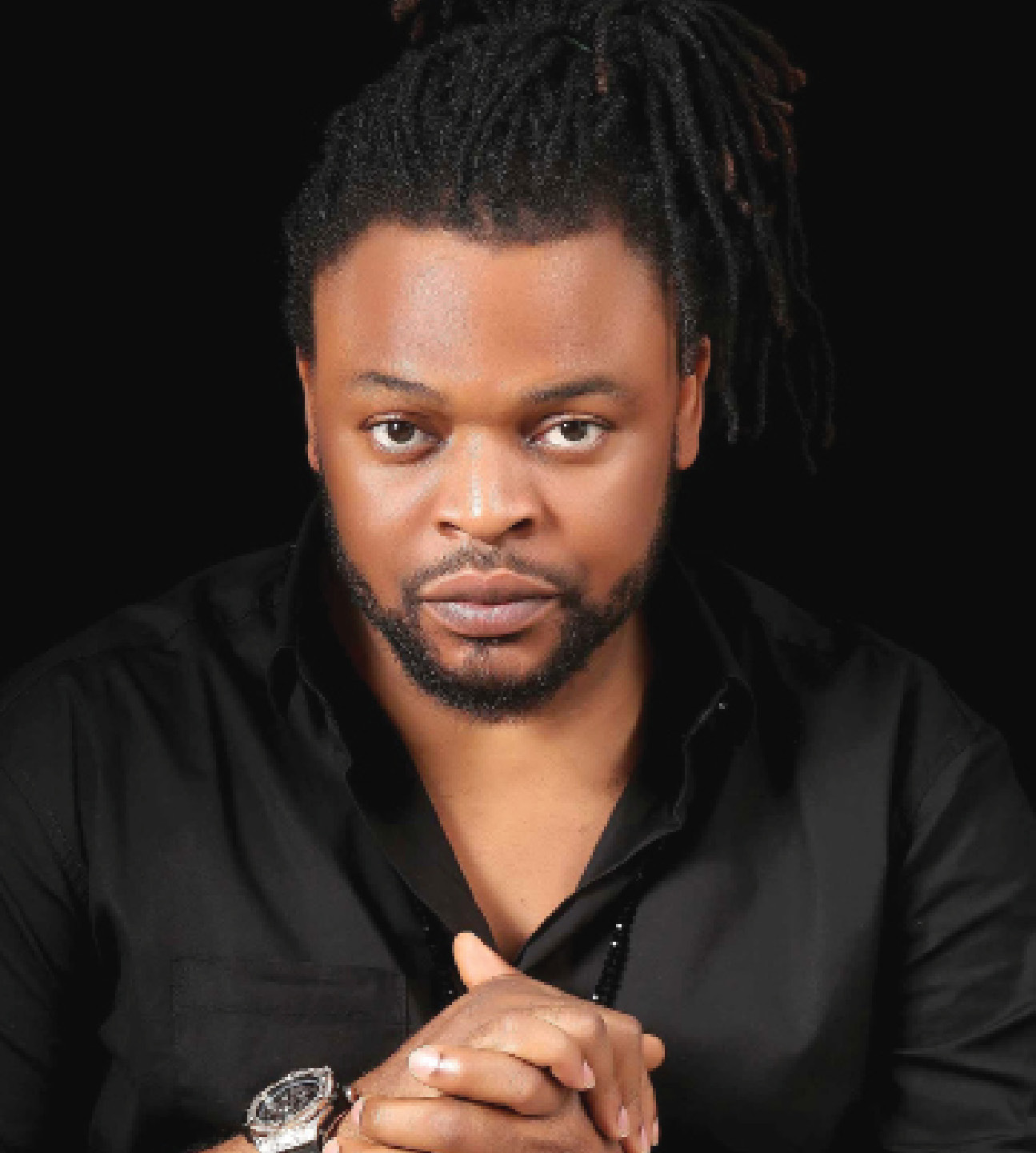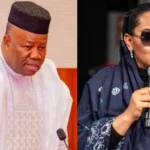Toka Mcbaror is from Delta State but was born in Kaduna where his interest for entertainment originated. He directed Jodie’s song ‘Kuchi Kuchi’ and the recently released movie ‘Kada River’. His works have won international awards including Berlin Campus Movie Festival, Africa Movie Academy Awards and the Nigeria Music and Video Awards. He speaks on working behind the scenes in Nigeria’s music industry.
Weekend Magazine: How many movies and songs have you directed so far?
Toka Mcbaror: Honestly, I have lost count of how many music videos I’ve done but for movies, I think about 41. I directed ‘Merry Men’, ‘Lotanna’, ‘The Island’, ‘Kada River’, ‘Made in Heaven’ and ‘Ikogosi’ to name but a few.
WM: How different is it directing movies and songs?
Mcbaror: There’s a huge difference. Making a music video is much easier because the artiste has done half of the job. As a director, the music is already a guide, so you just follow it. But for movies, the director has to create every little piece. So, you are incharge of how the movie looks and the emotions you are trying to sell. It’s a much more difficult job.
WM: Please tell us about your recent project with Teni.
Mcbaror: Teni is one of the most talented acts in Nigeria. She is such a humble fellow. I actually met her on set for the first time the day we were shooting her music video. Her boss Dr Dolor contracted me to make the video but we both agreed on the concept. It was a challenging video to shoot because we had to create everything. The shoot was very brief but the setup time was like three days.

WM: Are there times you have felt like abandoning a project?
Mcbaror: Oh yes, many times. I’ve done seven failed movies in the past. Sometimes you plan and things just turn out differently. Sometimes, you just don’t know what to do. Sincerely, it’s not as easy and fun as most people make it look. I remember we used to go into projects without knowing where the funds to complete it would come from. All we had was passion, no business sense. It took some years before I knew how to make money from my films. The story is completely different now, but it wasn’t always this smooth.
WM: Who/what has had the most influence on you regarding your work and how far you have come?
Mcbaror: Growing up, all I wanted was to be in the entertainment industry. At some point I thought I would end up a basketballer or a boxer. Those were the games I was really good at. However, some time in 1997, my interest started shifting towards the entertainment industry. My friend’s father, Abdullahi Nuhu, was a staff at NTA Kaduna. We kept following him to the office for children’s voice overs and learning editing. That was where it started for me.
WM: What is your most challenging work yet and why do you consider it your most challenging?
Mcbaror: That has to be ‘Revolution’, shot in 2007/08. It was mission impossible. We had just N4, 000 and 66 actors. I really wanted to make that film, and the actors were very determined. So, we decided to take the risk and just go on without proper funding, no welfare plan, no accommodation plan. We had to build the houses we lived in. We filmed for over two months by faith (laughter) the movie gave us several awards across the world. We won the Berlin Campus Movie Festival, Africa Movie Academy Awards, Zulu African Film Academy Awards (ZAFAA).
WM: Who are you most looking to work with?
Mcbaror: I’m hoping to work with some of the best actors in the world soon. It would be a pleasure to work with Idris Elba. He is a great actor. I’m hoping the opportunity comes soon.
WM: What was your first movie and how have you evolved over the years?
Mcbaror: It was ‘Tales of Bante’. It’s been a very long journey and I have no regrets. I strongly appreciate how God has carried me through this journey. I remember going without proper food for days. I remember when we could not even afford a tripod. I remember how I had to lie to actors that a director is coming from Lagos because I couldn’t tell them that I was the director. No one would have believed me if I had told them I was the director. How can I forget how we had to trek for hours looking for the right location? I remember when I had just one ‘I better pass my neighbour’ generator that could only power one 100w bulb. Today, the story is completely different.
WM: Is ‘Kada River’ the first true story you have worked on?
Mcbaror: It is the most impactful true story I’ve done because it was a story I was actively part of in 2000. The movie is very personal to me.
WM: How different was this experience as against directing a fictional piece?
Mcbaror: It was very different. I wanted the actors to feel the impact. So, I took them to a conflict zone. At the time, we were ready for principal photography and there were renewed crisis in Southern Kaduna. After the crisis, we had to take the production there. It was a very traumatic experience for me because it brought back memories of 2000 Sharia crisis that gave birth to the ‘Kada River’ story. In the end, we had very realistic pictures.
WM: What is your favourite Nollywood directed movie?
Mcbaror: That has to be ‘Figurine’, by Kunle Afolayan.
WM: What are you working on at the moment?
Mcbaror: I’m working on a very controversial film, called ‘SARS.’ It will surely get me into some trouble. As a filmmaker, it’s our responsibility to keep telling the right stories that will shape the future for our great nation.

 Join Daily Trust WhatsApp Community For Quick Access To News and Happenings Around You.
Join Daily Trust WhatsApp Community For Quick Access To News and Happenings Around You.


